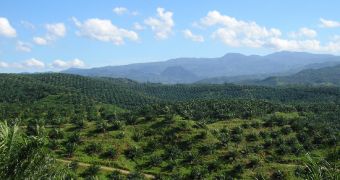Ordinary folks have long suspected that many palm oil companies do no give a rodent's dorsal side about human rights. Still, it took a report pieced together by several NGOs to make it official.
The 417-page report, titled “Conflict or Consent,” focused on the working agenda and policies of a total of 16 palm oil plantation operations currently underway in Indonesia, the Philippines, Malaysia, Thailand, Liberia, Cameroon and the Democratic Republic of Congo.
It says that many of the companies behind these palm oil plantations often fail to seek consent from local communities before starting to clear forests. More often than not, this translates into conflicts with these communities.
Given the fact that, by not asking these people whether or not they can operate on their land, the companies are basically failing to stand by their social and environmental commitments, it is no wonder that conflicts ensue. Monbagay details that, according to rules and regulations set in place by the Roundtable on Sustainable Palm Oil, companies are required to at least have a chat with local communities before setting up plantations on their land.
“Since its founding eight years ago, the RSPO has adopted good standards, but too many member companies are not delivering on these paper promises. The organization’s very credibility is at stake,” explains Norman Jiwan, with human rights organization Transformasi Untuk Keadilan Indonesia.
“So much effort has been invested in the RSPO and the International Finance Corporation’s dispute resolution mechanisms, but to little avail.”
“We can point to one or two good results on the ground, but there are thousands of land conflicts with oil palm companies in Indonesia alone, and the problem is now spreading to other parts of Asia and Africa. We are calling for an urgent and vastly expanded response to this crisis,” adds study contributor Jefri Saragih.
In light of these findings, the NGOs urge that the Roundtable on Sustainable Palm Oil does not settle for merely asking palm oil companies to take human rights into consideration when rolling out new development projects, but also see to it that the companies actually do what has been asked of them.
“Sanctioning mechanisms thus need to be clarified and enhanced to secure the credibility of the RSPO itself,” stresses Sophie Chao with human rights group Forest Peoples Programme.

 14 DAY TRIAL //
14 DAY TRIAL //